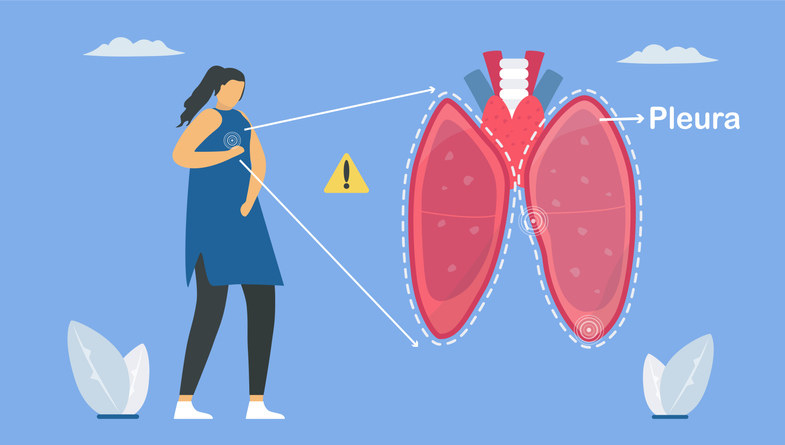Have you ever experienced a short (but sharp!) random pain in your chest and wondered, What the heck is that?!
In a recent viral TikTok, @hope.dx made a video highlighting a sharp, random pain that sometimes occurs in the chest area, specifically in the left boob.
But people in the comments all expressed the same sentiment: 1) Glad I'm not alone! and 2) WTF is it, then????
When BuzzFeed reached out to Lauren, she clarified a few things from her original video. "There’s three or four conditions that match the symptoms I was describing, so it’s important for people to not self-diagnose and [to] speak with a doctor, because not all the conditions are non-life-threatening," she stated. "I’m shocked how many people even have these symptoms, and now that I know, I’m even more shocked that all my doctors had no idea what it could be. I’m just glad that people now have a better vocabulary to present to their doctors to advocate for themselves."

We also reached out to experts in the field to further understand this issue. Fahimeh Sasan, MD, FACOG, a board-certified OB-GYN and founding physician and chief medical officer of OB-GYN at Kindbody, spoke to BuzzFeed about this health concern. "It is imperative that if a woman is having recurring breast pain of any kind that she see her gynecologist and have a breast exam," she explained. "Based on her exam and family history, her physician may further recommend breast imaging, such as breast ultrasound and/or mammogram. About 1 in 8 US women (about 13%) will develop invasive breast cancer over the course of her lifetime. As such, breast pain, masses, and lumps should never be ignored or presumed to be musculoskeletal or a 'phenomenon' until [a] full evaluation is done by a provider."

Mary Jane Minkin, MD, a clinical professor of OB-GYN at Yale University, shared her insights as well. "I don't think one can give a definitive answer," Minkin stated. "The pain she describes is certainly what we call pleuritic — i.e., it gets worse when you take a deep breath. And it actually can occur anywhere in the chest."

